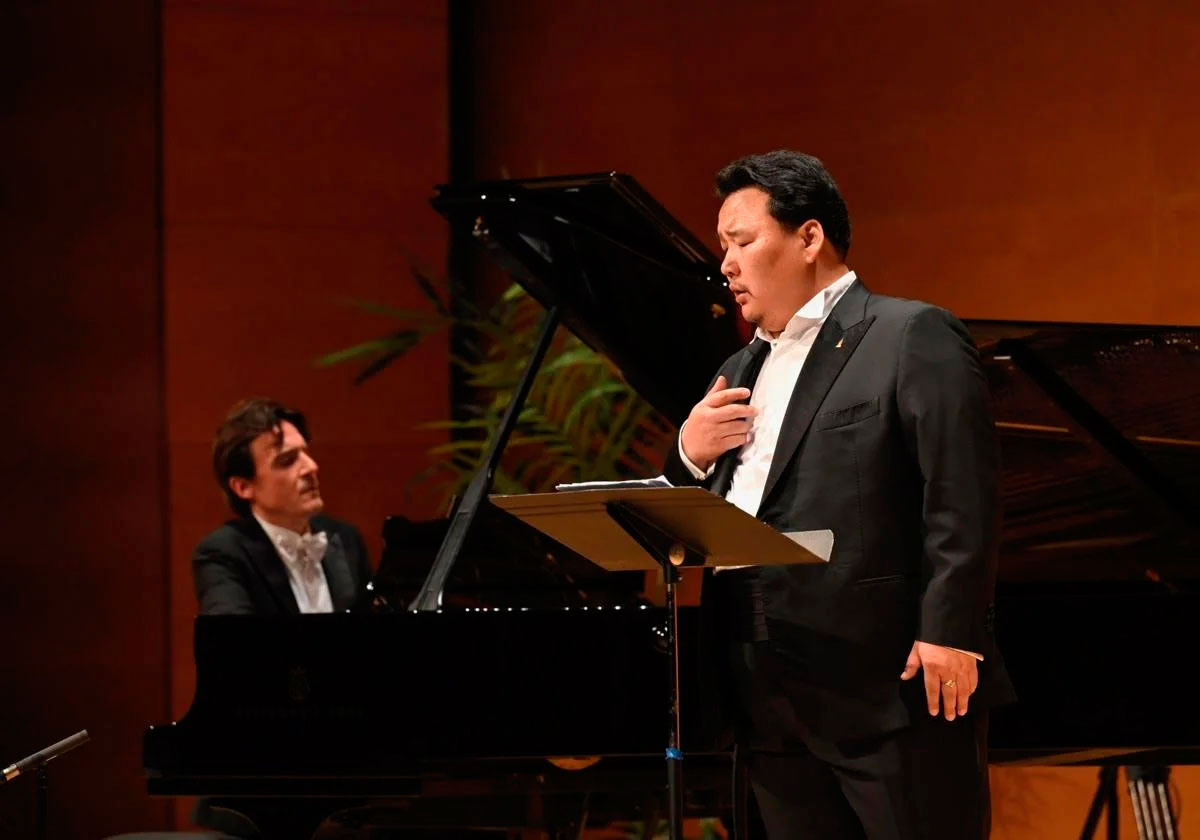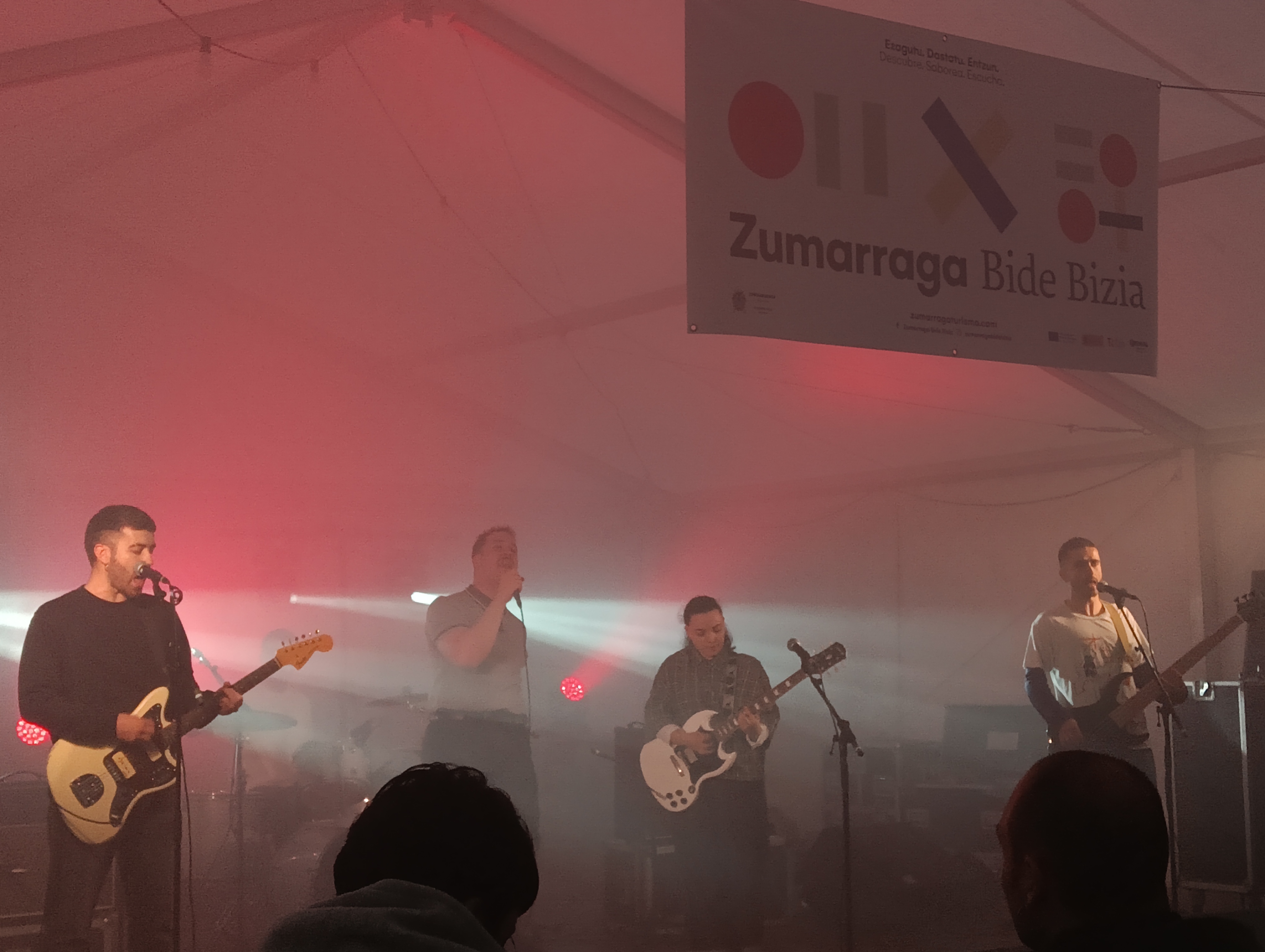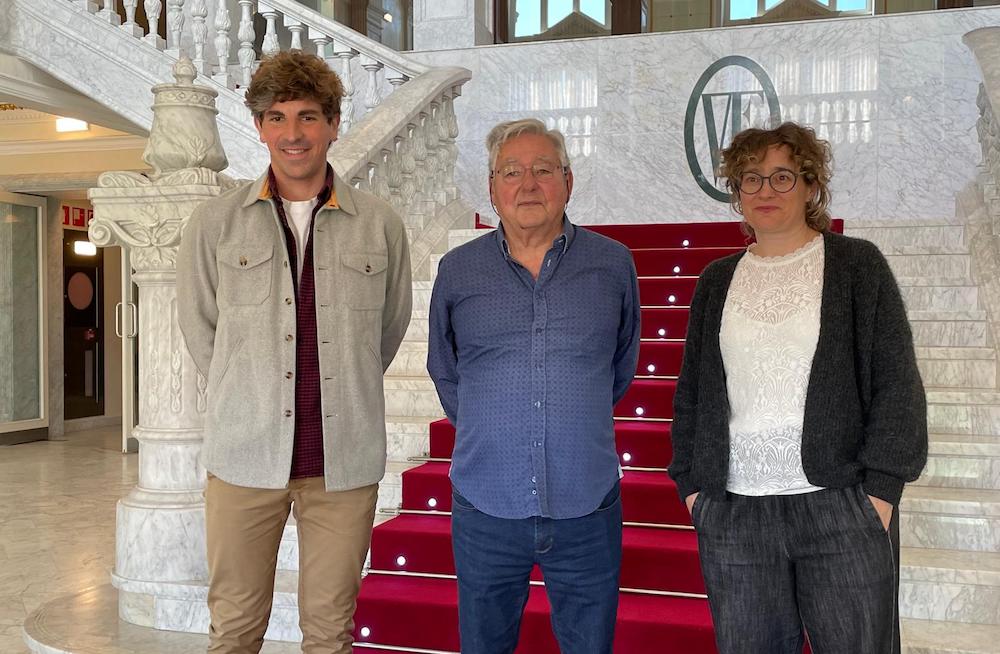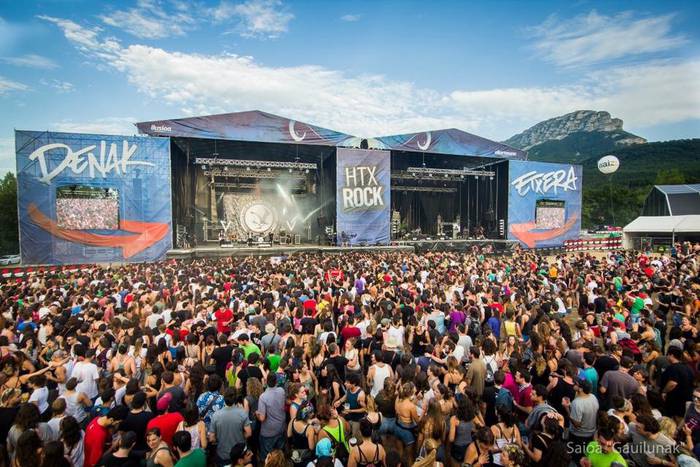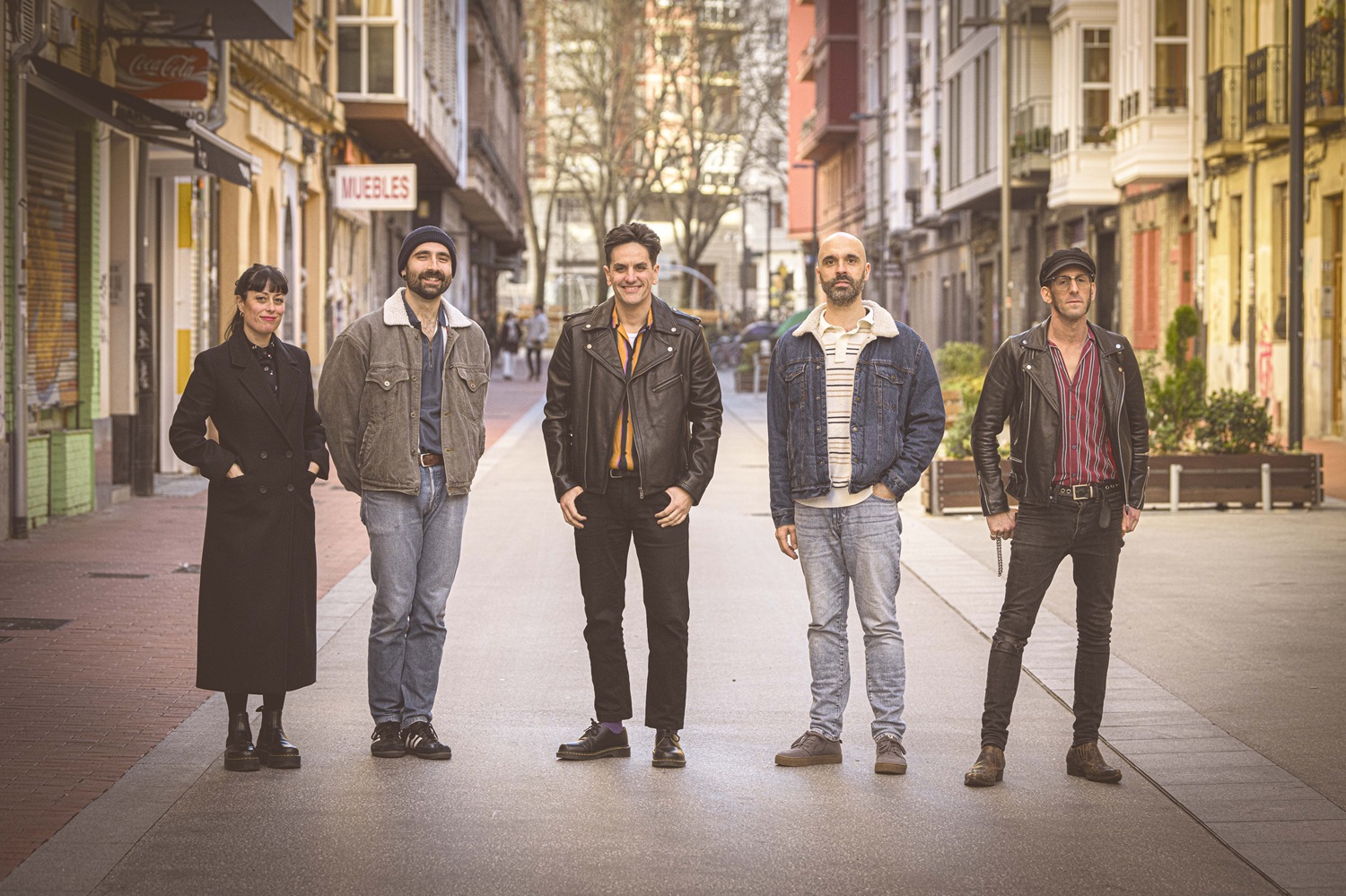"Music has always been an instrument of expression, liberation and fun"
- He had just completed a translation job and before starting a recording, Nahia Zubeldia received us at the home of the parents of Ziburu (Donibane Lohizune, 1982). Along with the bookshelf collected by the album and the book of Mother Maddi, we have mentioned the prolific and varied trajectory of the translator and artist working.

Musician, singer, writer, translator... How do you present yourself?
Who asks me, you've forgotten that I'm my mother's daughter. Yes, it is true, if they are all. As far as translation is concerned, having studied the science of language, I went to Vitoria to study translation. I see more translation profession, however, although I am very interested and not bored, I return it. Music, on the other hand, I would like it to be a trade, but I see it more as a hobby and as an expression that I need. As for the writer, it's a very new thing, so far the presentation card didn't show up like that, but it's true that I've always written songs. Now I have a project to write in a writers' residence, but I'm not going so far because I'm going to write poetry (see). Nahia Zubeldia, winner of the writing residence of Nekatoenea). In this experience, what I want is to go write, strip me and write honestly, without excuses, to see what I have in my womb; but from the point of view of format, it's not such a new exercise.
Can you explain this writer's stay?
The Basque Cultural Institute, the Association of Basque Writers and the CPIE Euskal Itsasbazterra propose a residence of writers for every year (see. The particularity of this year is that the Elkano de Getaria Foundation also participates, as it is five centuries of the return to the world of Elkano. One month I will be in Nekatoenea, I am very happy to be writing poetry in Hendaya, in the beautiful house next to the castle of Abbadia. It's not about poems about Elkano, but it's about a connection with Elkano, that's one of the conditions. Then they will be at sea, with the word open. When Elkano turned around the world, for him it was the sea, a very lively hope of knowing the world to discover things. Since then the world has greatly reduced us, everything is there and the sea has taught us that it has very dark visas. In the Mediterranean, many people are dying. Those people who risk crossing the sea, like us at the time, are going to look for a better world, that is, those people now see the sea from our perspective. That's the starting point I remember now, and then I'll see where it takes me, because in practice, when you write, the course changes frequently.
Being from Ziburu, what is your relationship to the sea like?
I've always had the sea. I've been living in Hazparne in Lekorne about ten years ago, and it's true I'm missing. We were always at sea from a young age and in childhood. Even though I have an uncle who travels a lot by boat, in summer we went with him to Brittany, where my wife is native, and there we went by boat, on islands. We were also going from Hendaia to Bermeo and I have made many such exits. I'm not a sailor, but I love living at sea, diving, sailing, having that wealth to look at your country from another point of view, and living on the boat, how time changes. From being dry to floating, time is very different, in the water, you have much less stimuli and it seems that time stops, you're there. Being on board the sailboat has some meditation for me.

On land, on the other hand, you don't stop. Is this diversity of activities an option, an obligation?
It's not an obligation, I think it's an unconscious option, I love walking for a lot of things, having different projects in the head. Then there is a point of obligation in some things; for example, the children's ikastola takes a long time. Then the translation is also a great diner of time, although I love it, sometimes you have to work a lot. But anyway, I manage to do everything. On the other hand, I force myself to stand a few times, I take a few weeks to be quiet with my children; I also like not doing anything, but not much.
From the music, Lumitik Unamara, a leap without transition. Are you an eclectic musician?
I've always made music with people, there's the link for me. I don't have a musical background, I don't have a lot of theory, so when I talk about music I do it without thinking too much, how it comes and how it comes out with the people I'm. It started naturally in the family, with the Unama group. We were always singing in our family, in ceremonies or at home, so we created that quartet with our brother and our cousins. Then I walked into another group with my children's father. Lumi's was a special thing at first, because the project came up with my current partner, but we started playing in music, before we became living couples. I had to give a solo concert, but I didn't want to go alone. I knew Manu Matthys from the lyceum, but as I had lived in Paris, we were long without seeing each other. We met at the Ziburu parties, we started talking, and he told me he was making electronic music. That music attracted me for a long time without knowing it too much, and I asked her to help me get that concert. And we had a good time, so good that other dates came out and so we went on.
The Basque electro pop of the Lumi group has had a great impact between Paris and Japan.
We started in 2012, and the group developed slowly. At first, I had made my own songs, and Manu had put his own sounds in those songs. Then it took a long time to meet us musically; my voice and composition was long to approach this world of sound and electronic music. Then we started creating songs together, that was a change. Now on the album most of the songs have come together and we think we've found our color. With Lumi, the Etxepare Institute gave us the opportunity to travel to Japan, thanks to economic aid to spread Euskera around the world. Without believing too much, with the help of a acquaintance who lived there and immersed himself in the music world, we tried to spot some dates and eventually came out better than we expected and was a wonderful experience. Then in Euskal Herria there are other groups that are dedicated to electronic music, not entirely our style.

Do you play a lot in Basque Country?
We are increasingly heading south, as the northern turn is fast. Since Covida has spread, it is easy, we touch very little in general. But that, on the other hand, opens up the possibility of looking into the future without haste, because life is quite full and when you have concerts, you spend your time doing it directly, without leaving much room for creation. So we leveraged that moment to create new things, rethink our way of working, use instruments, sounds, combine my voice and my guitar with electronic sounds, etc. Because for us, the goal is to mix all of that and not know when the guitar or the synth is when listening to music, the goal is for those instruments to come together.
Cousins, mother, father, brothers, has the Zubeldia family ever fallen into a breeding ground?
Someone told me that in the Zubeldia family, we have notes instead of what we had. I personally do not know how to read a score, I know more or less where the notes are, but in music and singing it is natural. At home, one of us starts singing at any time, and another makes his second voice unthinking, it's spontaneous. If I have a big memory, after having dinner as a little boy in the kitchen, we all started singing, but forcing ourselves to sing badly, everyone had to get the most ugly voice possible, but we all together created something. It was a great pleasure, we laughed a lot. Also with electronic music, sometimes we try to dirty the sound, I love that. So there's always been music, but there's never been conservatories, solfeos, so I've never felt the obligation, music has always been an instrument of expression, of liberation and of fun.
Moï Moï Nombremos to the collective and if you know it well, Baleapop, Usopop festivals.
I was not at the origin, I arrived later, with the knowledge of Manu. Moï It was created among friends, all were neighbors or neighbors of Donibane, and the goal was to make things move, because many of the things that were done in San Juan de Luz were old, culturally unmitigated; then the goal was to bring a fresh wind. The group set up the Baleapop Festival, which has been held for ten years. Last year, we decided to do the last edition, the tenth and the last, and we have to say we've had our nose because by 2020 we couldn't do it. In addition to a round tour, there is now a radio and there are always projects on the right, on the left, created or created, it is a bubble cultural.Tambi in the Usopop festival, and the people of Baleapop knew the organizers of Sara and they loved the project, so that name was Baleapop, to turn it into a parallel to the coast.
Does culture need these kinds of projects?
Of course, cultural initiatives of all kinds, small things, larger ones are needed. Then Covid-19 is difficult in these times. Usopop's have another project called Lost Maps, which they've had to postpone. I look at Usopop's projects a lot because they have their own identity, open, fresh, new, serious, but not serious. They think and do without exaggerating too much, and I think that's the most important thing to do and do.
Is creativity scarce in Euskal Herria?
I don't think, because in the portal Badok.eus you see that currently there is a new group, a new album, there is real material. Then perhaps what is missing is that information is given among all those links. But creativity is still alive in Euskal Herria, if there is everything. I'm not a musical critic, everyone makes their way. If I look around me, if it's the Orbel Group, my friends and they really have a serious and very interesting project, with a lot of personality. Peio Erramuzpe, who recently worked in the Atabal Hall in Biarritz, Euskaldun, an innovator. In Ipar Euskal Herria, it seems to me that there is an innovative environment, or free to begin with.
What do you think of the immaterial heritage?
I don't know what to rule out, but what to hold back, yes, the first thing the Basque gives us, our identity and the way we have to see the world. From there you also have to go to diversity, and what I want is to see that diversity, to have surprises and to make that immaterial become material, to do concerts, to organize exhibitions, to make that immaterial emotion.

You're also particularly excited about the issue of immigrants.
It is a rather personal issue, as two years ago I began to put the situation in a hurry. You look at yourself and think about how well we are, how quiet we live and how we can be looking at the situation of others without doing anything. I started making a song, so then I started looking for information and I wrote to the Immigrants and the La Cimade association that they were taking care of immigrants, telling them that we could take an immigrant for a while. At first I called them to know what was going on, but right away we took a young man to start a couple of weeks. In the end, those two weeks became a year and a half. So, unexpectedly, without realizing it, it's become a very close subject. Now this young man has left home, follows the studies, he will uncheck to get papers, for the moment his life is going well and I cross the sick. Then it is true that when he has left home we have moved away from the issue because he has taken us a lot of energy and has also risen emotionally. But this is a subject that we always remember. The Basques also know the subject well, we are an immigrant people, it helps us to understand what we have lived and encourages us to understand what these people live.
How do you experience the Covid-19 crisis?
At first there was such a big awe, I think we were all a bit astonished, almost like an emotion, aware that we were living a historic moment. With the children happy, we, when we were young, often waited for that; every now and then, when there was a lot of snow, they closed school one day and we were content with that, but that too happened rarely. At first, then, the situation has been almost optimistic and it is true that positive things have emerged. I've lived the lockdown quite well, except that, however, I heard that those who work in the music around me took the time to create music; and I had translations so far, plus the children's duties and history, so, in my case, it's not a pause. On the other hand, the lack of transport has stopped the engine a little. Then in summer it seems that the problems have been forgotten because it is a question of reviving the economy. When I came to San Juan de Luz in summer, I was surprised to see the crowd. Then you understand that people want fresh air, the sea air we don't want just us. However, the situation is now dragging on. My son goes to school with masks every day, parties stop, at home dinners are made, but I do feel it's long ago. Like everyone else, I come to the sick and hope that this situation will not last too long.
A dream?
What I now remember is not a dream of the other world, but I sincerely hope that you will be content with what I will bring out during this writing stay, as it is a challenge for me, for the first time, that I take that time to write, paid in addition. It looks like stupidity, a detail, but that adds pressure. So I'd like to be happy about it, and hopefully some of those poems were right to turn them into songs, and then create a record with those songs, and then, if the situation calms down, reintroduce that record around the world. That would be a nice project and I didn't think about it beforehand, but since you mention the dream, you can't imagine going back on Elkano's way to present the album, back to the world, right?
Do you want to answer a question I haven't asked to finish?
No, I think we've already turned around.
By Samuel Mariño + Gabta Consort
Director and violin soloist: Assisted by Stefano Barneschi.
What is it about? Works by Purcell, Händel, Geminiani, Vivaldi and Graun.
When: May 9th.
In which: At the Baluarte Palace in Pamplona.
... [+]
It's on
JOHN DEALER & COCONUTS
Ghost Highway, 2025
------------------------------------------------------
Adin batetik aurrera kontzertuak, diskoak eta kantuak bizkarrean eta burmuinean pilatuta, eta musika entzuteko denbora murritzagoa bilakatuta, taldeak bilatu... [+]
Esperoan
Hiuzz
Self-production (collective slow days), 2024
The group of groups that pass unnoticed is getting bigger, or at least bigger than ever. Although Hiuzz’s Esperoan is a few months old, I didn’t make... [+]
BRN + Neighborhood and Sain Mountain + Odei + Monsieur le crepe and Muxker
What: The harvest party.
When: May 2nd.
In which: In the Bilborock Room.
---------------------------------------------------------
The seeds sown need water, light and time to germinate. Nature has... [+]
Amartuvshin Enkhbat baritonoa
Pianoan: Stefano Salvatori.
Antolatzailea: OLBE.
Zer: Verdi, Mascagni, Leoncavallo eta Giordanoren operen ariak.
Non: Bilboko Euskalduna Jauregian.
Noiz: martxoaren 29an.
Aramu + AimarZ
When: April 26.
In which: The Zumarraga Open Field.
---------------------------------------------------------
The website of the City Council says: "The tourist brand Viva Viva and the festival of the same name are designed to show the world the soul of... [+]
Transparent Beings
When: April 20th.
In which: In the Plaza of the Castle of Pamplona.
-----------------------------------------------
The concert is only half an hour away in the Plaza del Castillo de Pamplona; but it is still half empty, because it is raining. Whether... [+]









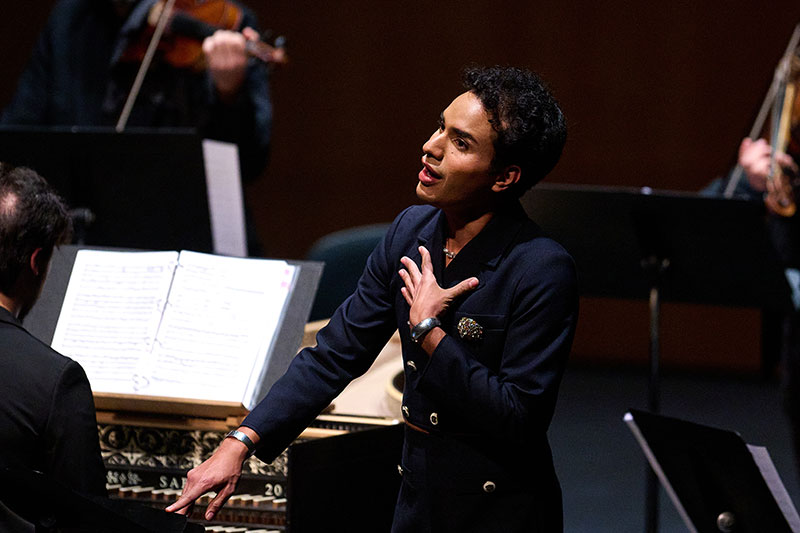

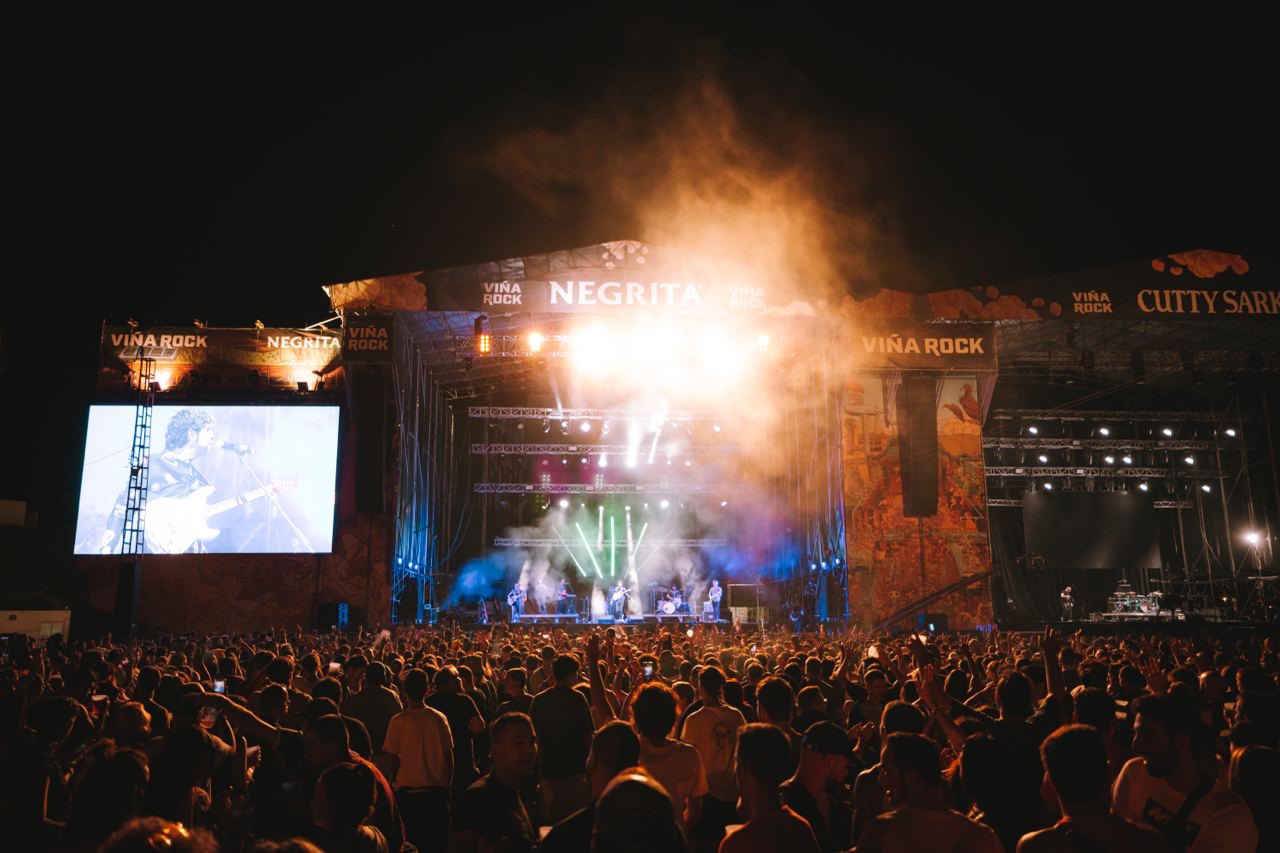
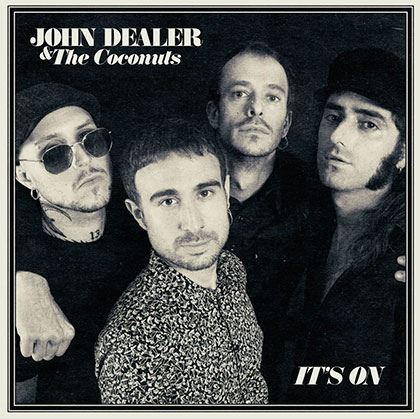

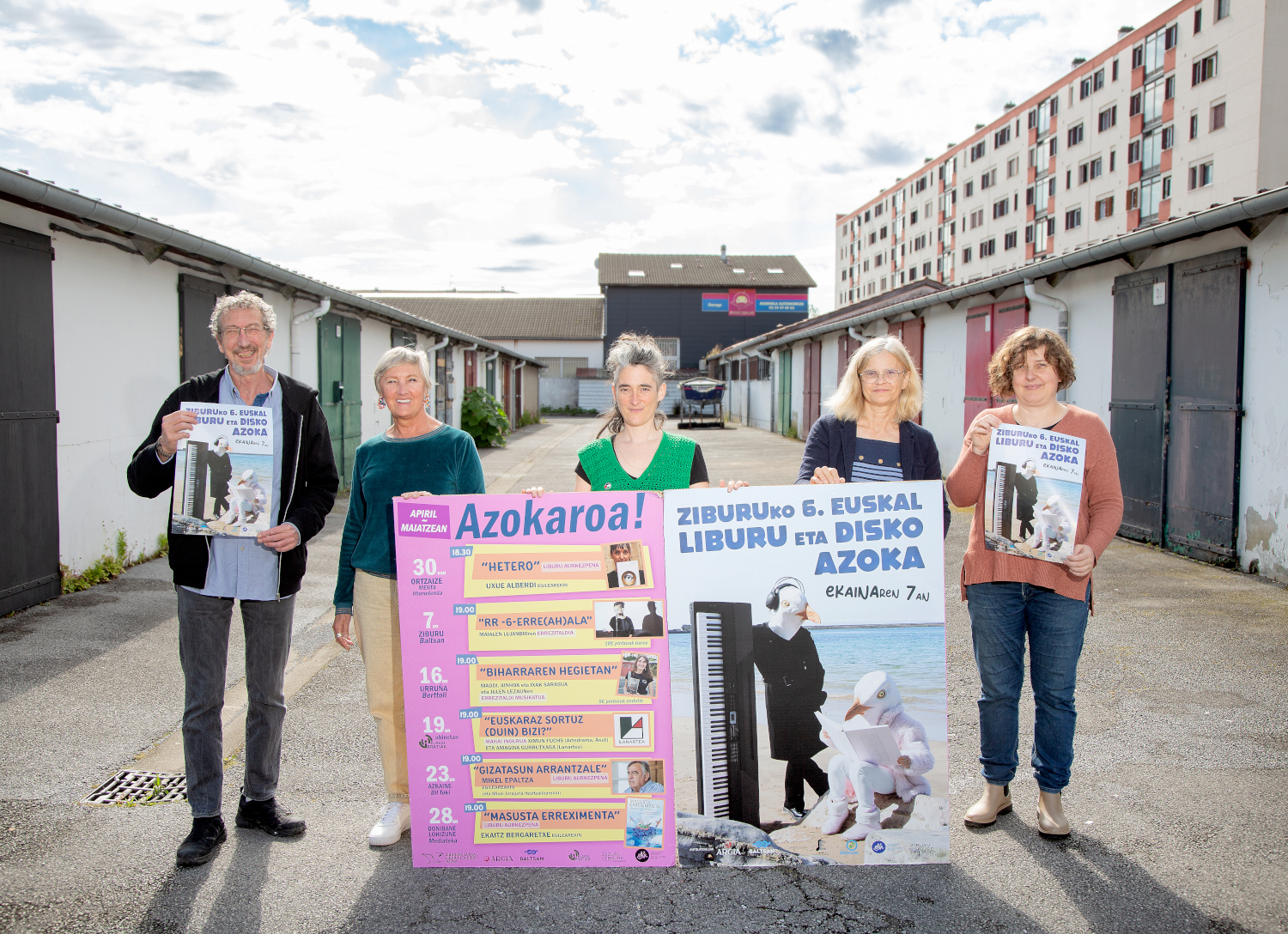

.jpg)

